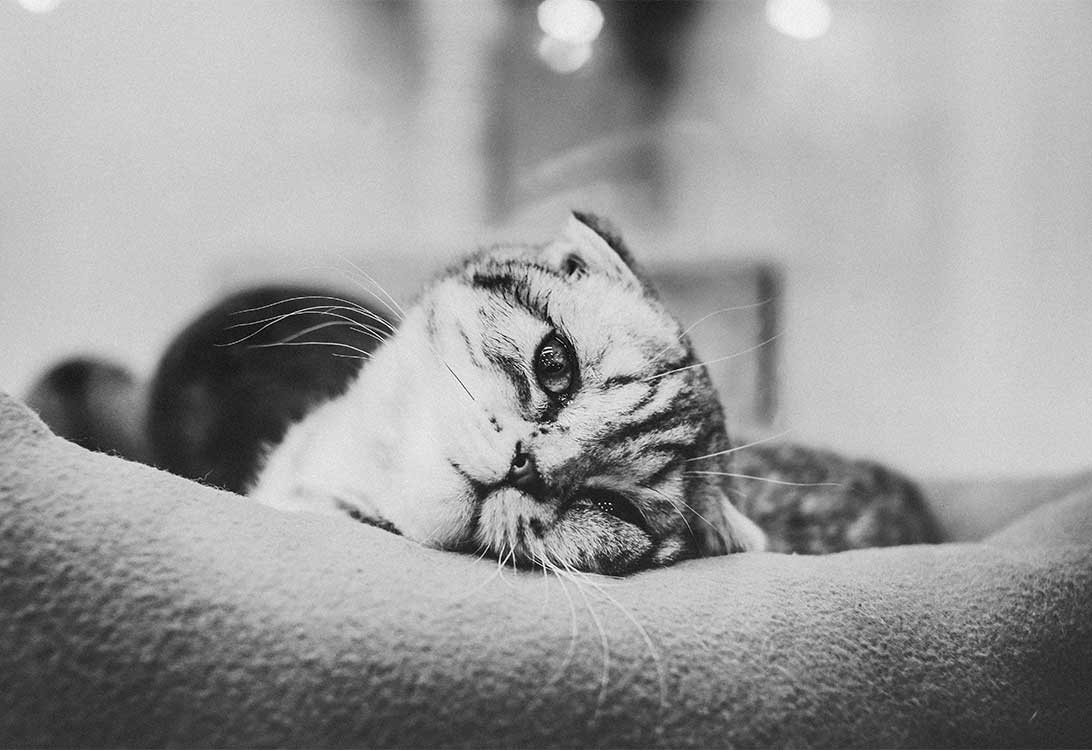7 Subtle Signs Your Cat is in Pain

Cats are really good at hiding pain. There’s long been a biological disadvantage against cats showing any kind of weakness. Since pain is weakness, cats have become really adept at acting like everything’s fine when it’s, well, not. Your cat can be in pain for hours, days, or even months before you realize anything’s amiss, in part because most feline pain symptoms are surprisingly subtle. Here are seven signs your cat is in pain to keep in mind.
1. Excessive Licking
Cats lick. A lot. It’s how they groom themselves and also how they exercise! But if your cat starts licking a specific part of their body again and again and again – particularly if that means they’re neglecting other parts of their body – it could mean they’re trying to soothe pain in that part of their body.
2. Change in Meowing
It’s not vocalization but a change in the way your cat vocalizes that might indicate pain. Pay attention to the amount of “talking” your cat is doing and the volume they’re using. Is it more often or louder than usual? If your cat’s meow has turned into more of a whine, it could indicate pain.
3. Hiding
Some cats hide for fun, but if yours suddenly starts hiding more often than usual (or for the first time), it’s usually indicative something is off. Remember that hiding doesn’t always look like hiding. A cat who is averting their gaze, nesting deeper into their bed, or simply staying out of sight might be actively trying to hide.
4. Panting
Cats generally don’t pant unless they have a physiological reason to. If you can’t explain your cats panting or heavy breathing away by something like a hot day, it could mean your cat’s body is having trouble getting enough oxygen. If the panting is continuous or accompanied by drooling, weakness, or other signs of pain, it’s time to be concerned.
5. Restlessness
Sometimes a cat in pain will become restless almost to the point of hostility. In the cat’s mind, sitting still makes them a vulnerable target to predators in their weakened state. Constantly moving around could be your cat’s way of looking for relief from pain – or even a sign that their pain is costing them sleep.
6. Decreased Appetite
Cats are notoriously picky eaters but if yours stops eating or, worse, stops drinking altogether, you can bet they’re in pain. Pain isn’t very appetizing. A lack of appetite could mean your cat’s body is reserving its resources to handle pain, not to digest food.
7. Irritability
Sudden onset aggression in cats almost always indicates pain, whether physical or emotional. No one is super happy when they’re in pain, including your cat. Aggression, from scratching when petted to hissing when you walk into a room, could be a sign your cat’s on the defense because they’re feeling vulnerable.


